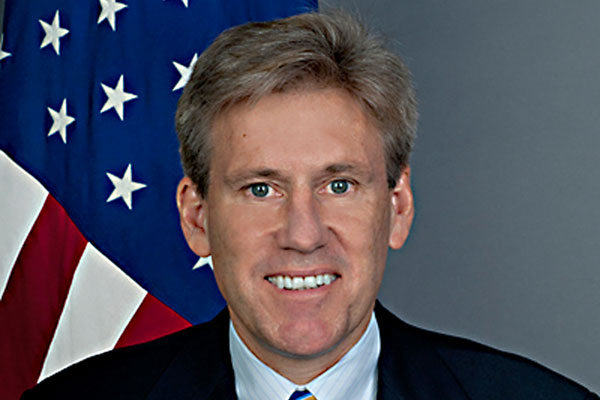While official commemorations of September 11, 2001, are going on and Americans continue to grieve and honor the lives lost 12 years ago, those who lost their lives in Benghazi, Libya, one year ago today must not be forgotten. This day also marks the anniversary of the death of U.S. Ambassador to Libya Christopher Stevens, Sean Smith, Glen Doherty, and Tyrone Woods.
The U.S. went to war against al-Qaeda and the Afghan Taliban government that sponsored them just one month after the attacks on New York and Washington. Yet, one full year after Benghazi, a multitude of questions remain about the circumstances of the deaths of these four brave Americans, and to date no retaliation has taken place, no one brought to justice. No one at the State Department, which failed to offer them sufficient protection for their mission, has been held to account.
“Our moral obligation is to defend and protect Americans,” said former Congressman Allen West (R–FL), speaking at The Heritage Foundation’s event “Benghazi: Another Tragic September 11 Anniversary.” “If we don’t, we will be a lesser nation.” Despite the efforts of five congressional committees to unearth the facts of Benghazi, numerous questions remain, and a subsequent investigation of embassy security indicates that the deficiencies that led to Benghazi have still not been fixed.
We still do not know what Stevens was doing in Benghazi on September 11—with minimal security on a day when the risk of attacks on Americans was especially high. We have not heard from most of the State Department employees, the security staff, or the CIA personnel posted to Benghazi about their firsthand accounts of the attack. As Steve Bucci, director of Heritage’s Allison Center for Foreign Policy Studies, noted yesterday, we still do not know why the strong military ethos of not leaving any American behind was overruled and military action aborted.
Nor, as Johns Hopkins professor Mary Habeck noted, do we even fully understand who the enemy is or what motivates him. Contrary to the law-and-order approach to terrorism adopted by the Obama Administration, Habeck argued, al-Qaeda aspires to a global insurgency and is not simply dedicated to toppling individual governments in the Middle East and North Africa. Therefore, the U.S. and its diplomatic posts and military facilities continue to be targets.
As we mourn those who fell 12 years ago and those who died in Benghazi one year ago today, this country should renew its moral resolve. President Obama now argues the moral case for intervening against the Syrian government’s use of chemical weapons. One year ago, the moral case to come to the defense of Americans under attack was not a top priority—but it should have been.



























